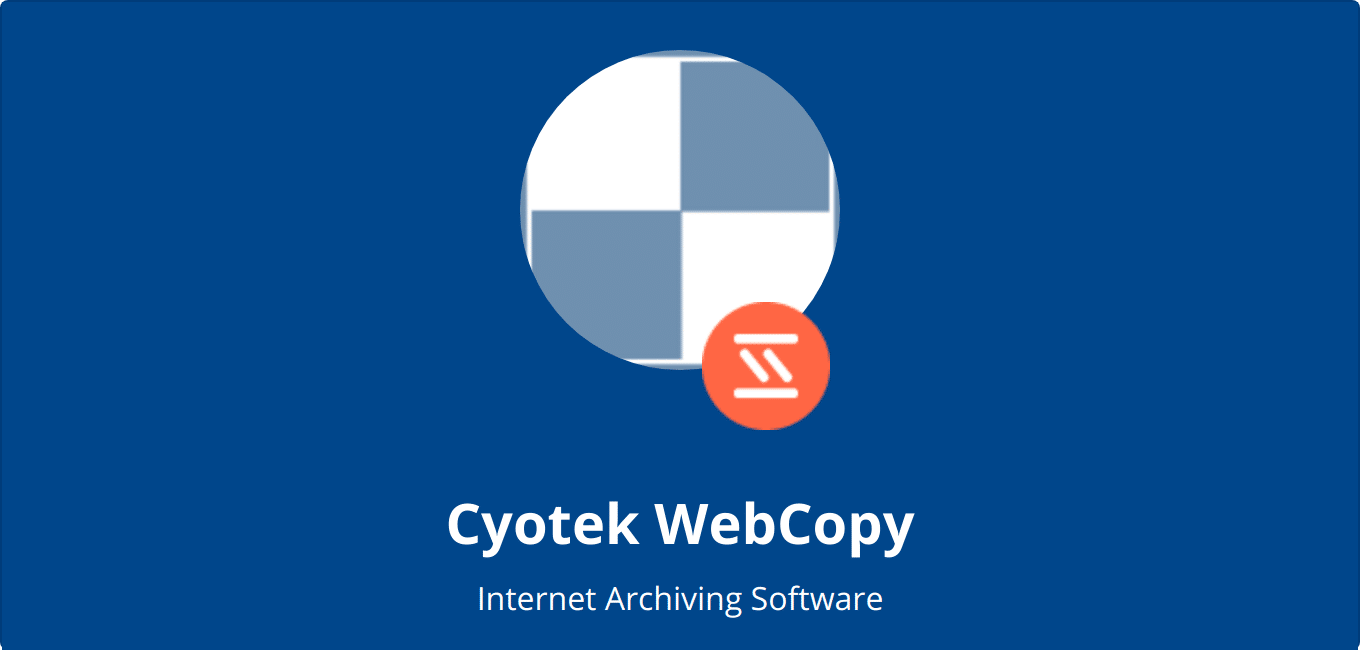WebCopy is a versatile and indispensable tool for individuals and businesses engaged in web scraping and data extraction activities. In this article, we will delve into what WebCopy is, its applications, and the crucial role that proxy servers play in enhancing its functionality. Whether you’re an e-commerce enthusiast, a market researcher, or a data analyst, understanding the nuances of WebCopy and how to leverage proxy servers with it can significantly benefit your web scraping endeavors.
What is WebCopy Used for and How Does it Work?
WebCopy, developed by Cyotek, is a powerful website copying tool that allows users to download entire websites for offline browsing or archival purposes. It operates by recursively analyzing a target website’s structure, retrieving web pages, and saving them to your local storage. This tool is highly customizable, enabling users to specify which parts of a website to copy, set download limits, and much more.
Key Features of WebCopy:
- Recursive Website Copying: WebCopy meticulously follows links and replicates the entire website structure.
- Selective Download: Users can exclude specific file types, URLs, or content to refine their data extraction.
- User-Agent Spoofing: WebCopy can mimic different user agents to access websites that may block web scrapers.
- Content Parsing: It extracts text and images from web pages, making it ideal for data analysis and research.
Why Do You Need a Proxy for WebCopy?
Proxy servers are invaluable when using WebCopy for several reasons:
-
IP Address Rotation: WebCopy’s rapid requests to a website can trigger IP bans or rate limits. By routing your requests through a proxy server, you can rotate IP addresses, mitigating the risk of detection and blockage.
-
Geographic Targeting: Some websites restrict access based on geographical location. Proxies allow you to choose an IP address from various locations, ensuring unrestricted access to your target website.
-
Anonymity: Proxies provide a layer of anonymity, preventing websites from tracking your real IP address. This enhances privacy and security during web scraping.
Advantages of Using a Proxy with WebCopy
Utilizing proxy servers in conjunction with WebCopy offers numerous advantages, enhancing your web scraping capabilities:
Improved Performance:
- Faster Download Speeds: Proxies can distribute requests across multiple IP addresses, speeding up data extraction.
- Stability: Proxies provide redundancy, ensuring uninterrupted scraping even if some IP addresses are blocked.
Enhanced Privacy and Security:
- Anonymity: Hide your identity and location, safeguarding your online activities.
- Data Protection: Encrypt your traffic to protect sensitive information.
Geolocation Flexibility:
- Access Geo-Restricted Content: Seamlessly scrape websites that limit access to specific regions.
- Market Research: Gather global data for market analysis by switching between IP locations.
What Are the Cons of Using Free Proxies for WebCopy?
While free proxies may seem tempting, they often come with significant drawbacks:
Reliability:
- Unreliable Connections: Free proxies may frequently disconnect or become inaccessible, disrupting your scraping process.
- Overcrowding: Shared by many users, free proxies can become slow due to high traffic.
Security Risks:
- Data Security: Free proxies can log your data and compromise your privacy.
- Malicious Proxies: Some free proxies may inject malware or ads into your traffic.
What Are the Best Proxies for WebCopy?
Selecting the right proxy provider is crucial for an efficient and secure scraping experience. Consider the following factors:
-
Paid Proxies: Opt for reputable paid proxy providers like OneProxy for reliability and dedicated support.
-
IP Pool Size: A provider with a large IP pool offers more rotation options, reducing the risk of detection.
-
Geo-Diversity: Ensure the provider offers proxies in diverse geographic locations to suit your needs.
-
High Performance: Choose proxies with low latency and high-speed connections for efficient scraping.
How to Configure a Proxy Server for WebCopy?
Configuring a proxy server for WebCopy is a straightforward process:
-
Obtain Proxy Credentials: Sign up with a proxy provider like OneProxy and obtain the necessary credentials (IP address, port, username, and password).
-
Open WebCopy: Launch WebCopy and go to the “Project Properties” section.
-
Proxy Settings: Under “Proxy Settings,” select “Use a proxy server” and enter the provided proxy details.
-
Test and Save: Test the proxy connection to ensure it’s working correctly, then save your project settings.
By following these steps, you can seamlessly integrate proxy servers into WebCopy, optimizing your web scraping capabilities.
In conclusion, WebCopy is a potent tool for web scraping and data extraction, and the strategic use of proxy servers can amplify its effectiveness. Whether you’re scraping for research, market analysis, or archival purposes, understanding the synergy between WebCopy and proxies is essential for a successful web scraping venture.













